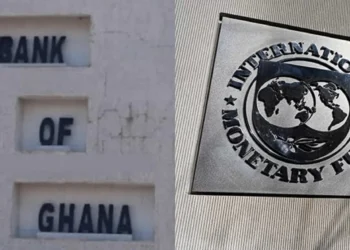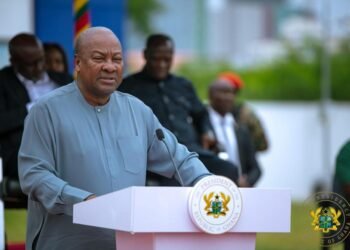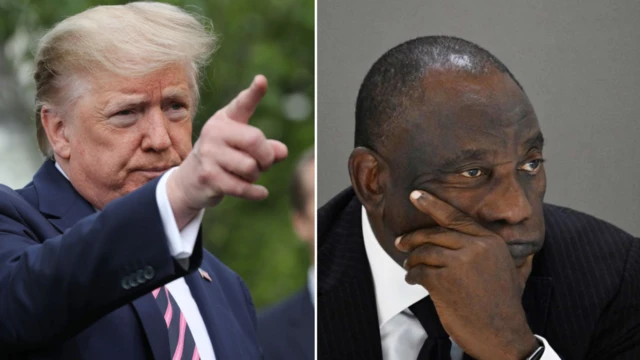The proposed National Cultural Convention Centre, envisioned as a repurposing of the abandoned National Cathedral structure and tied to Ghana’s emerging 24-hour economy initiative, has drawn firm objections from legal practitioner and political activist Oliver Barker-Vormawor.
While Barker-Vormawor acknowledged that many of the policy ideas emerging from the 24-hour economy secretariat may appear intellectually stimulating at first glance, he expressed skepticism about their real-world applicability.
According to him, the success of these initiatives will ultimately depend on how effectively they transition from theoretical frameworks into actionable and impactful programmes.
Although he expressed cautious interest in the broader 24-hour economy vision, Barker-Vormawor took particular issue with the plan to create a Cultural Convention Centre, arguing that it does not offer the strategic utility needed to genuinely advance the core aims of the policy.
“First, I do not see how that kind of infrastructure substantially advances the policy support needed to achieve a 24-hour economy.
“Secondly, I consider it to be a policy decision by ambush. Just because someone dug a hole does not mean you must use the hole. It is a different scenario from if the building had already been put up and you are now wondering how to repurpose it.”
Oliver Barker-Vormawor

Barker-Vormawor backed his criticism with financial concerns. According to him, the initial projected cost of the National Cathedral project was $100 million, later ballooning to $400 million, and now has reportedly reached $1 billion.
He suggested that such figures are not only excessive but also detached from Ghana’s current economic realities.
In his words, 90% of the project’s expenses were lost to corruption, and despite spending GHS340 million, the nation is “not even 0.5% closer to the project.”
Spending Priorities Questioned
Oliver Barker-Vormawor further stressed the urgent need for the government to shift its attention toward strengthening healthcare infrastructure.
According to the political activist, this is a more critical national priority compared to investing in cultural facilities.
“We are still a society where a Doctor dies from gaps in our critical care infrastructure. A society where, in less than a year, 2 MPs in their 40s have died; one of NCDs, which though one of the highest killers in Ghana, public health information is low on; and the other for medical needs, he was relying on Germany for.”
Oliver Barker-Vormawor

In this context, Barker-Vormawor posed a provocative challenge to the government. Rather than investing in a grand cultural centre, he urged authorities to develop what he termed a “proper 24-hour hospital” as a credible testament to the aspirations of the 24-hour economy.
According to him, Ghana’s public health infrastructure is ill-equipped and requires immediate and meaningful intervention.
“Give me something that makes me believe that we can give this country more than more drumming and dancing,” he stated, expressing disillusionment with what he perceives to be superficial investments.
He proposed that a mere 0.5% of the centre’s estimated budget be allocated to refurbishing the existing National Theatre, and the remaining funds redirected toward expanding healthcare capacity nationwide.
In doing so, Barker-Vormawor believes Ghana could begin to meet the real demands of a 24-hour economy — including access to emergency health services, which would operate around the clock.
Questions Raised Over National Cultural Centre Costs
Oliver Barker-Vormawor also criticized the lack of transparency around the Convention Centre’s planning and financial structure.
In his assessment, Ghanaians have been provided with little to no clarity about the projected costs or the overall value such a facility would offer.

He likened the proposal to the National Cathedral project, which he also views as a costly and poorly justified venture. “This is also, after all, a Cathedral devoted this time not to God but Culture,” he quipped.
The activist ended his statement with a sarcastic jab, suggesting that “you don’t know what to do with holes, build a manhole!“
“We can squat on the stones they imported from Israel to handle our business,” he concluded, alluding to the symbolism and potential wastefulness surrounding the project.
Through his remarks, Barker-Vormawor added to a growing national discourse on fiscal discipline, infrastructure planning, and the true meaning of development in a modern Ghana.
As the 24-hour economy continues to be rolled out, debates like this are expected to shape public opinion and possibly influence future policy direction.
READ ALSO: 24-Hour Economy Policy Alone Not Enough – GNCCI Warns




















